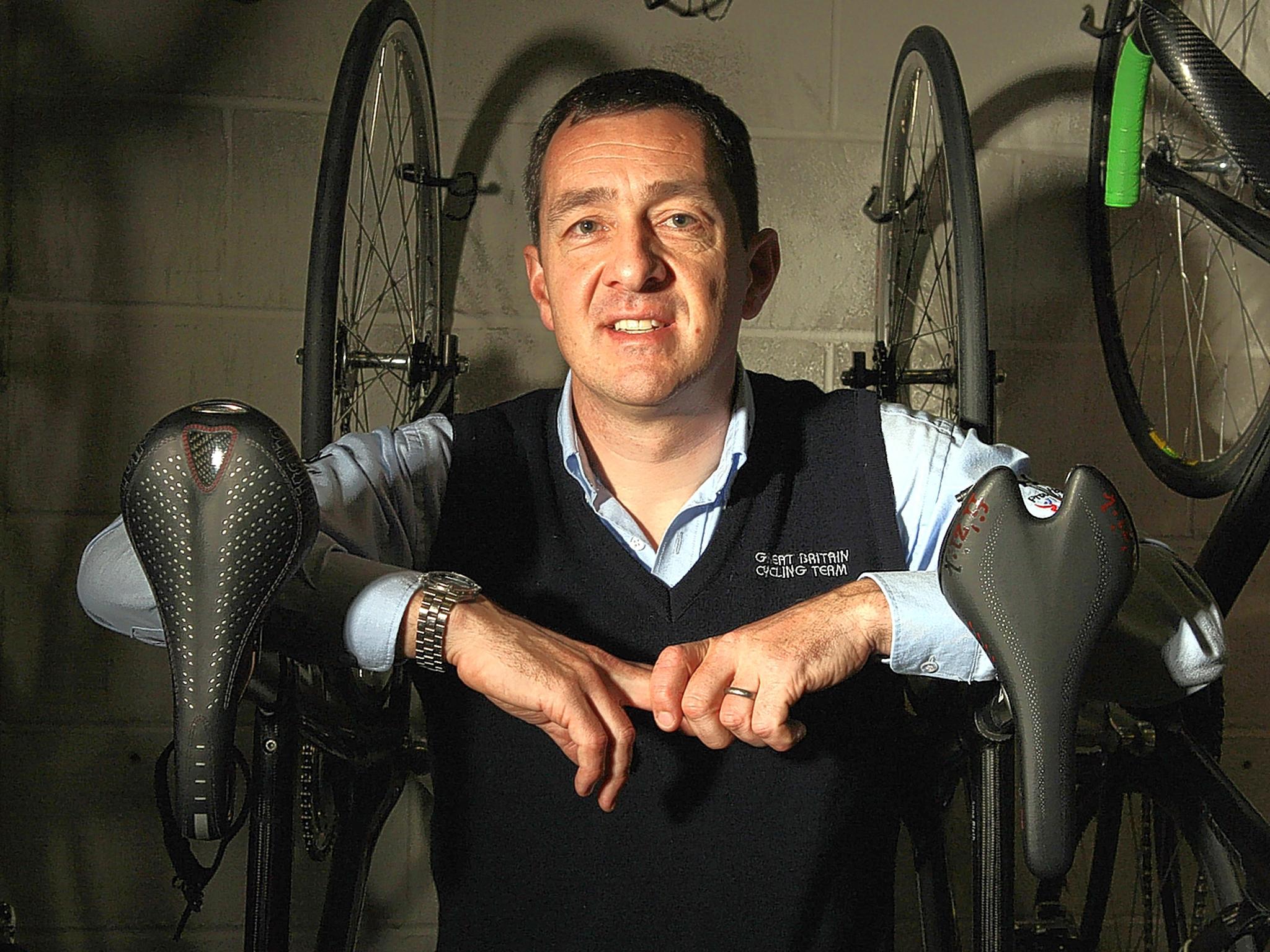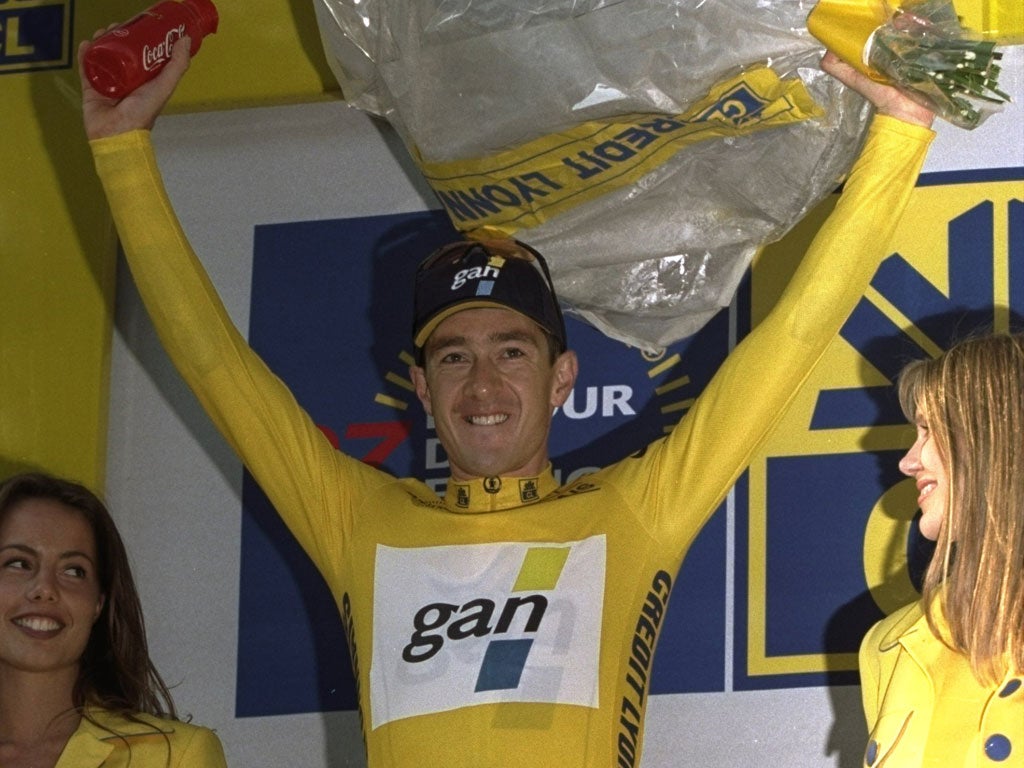Chris Boardman: 'The top of cycling is a tough place to be'
A trailblazer for British success on the track and the road, Chris Boardman tells Alasdair Fotheringham why in 2016 it will be a big challenge to stay in front

Mostly for the right reasons, 2015 has been another memorable year for British cycling. The high points were plentiful – a third win from four in the Tour de France (and second for Chris Froome), a Road World Championships and another World Cup series victory for Lizzie Armitstead, two successful Hour Record attempts for Bradley Wiggins and Alex Dowsett and a Mountain Bike World Championships for Rachel Atherton.
So what about Britain’s cycling chances in 2016, particularly when there is the added challenge of living up to 2008 and 2012’s outstanding results in the Olympics? “The best you can hope for is the same,” says Chris Boardman who in the 1990s was a trailblazer for the current British cycling success.
However, between sips of coffee in a London cafe, he is quick to add a rather important sub-clause. “The thing is, though, you can only live on the front line of cycling or anything for a limited time, because it’s so tense, it’s a very tough place to be. That’s something that, ironically, Dave Brailsford [Sky’s team principal] once said to me, a long time ago.”

If you had to name the moment when the British public’s passion for Olympic cycling was re-ignited, it was surely in 1992 when Boardman punched his right arm skywards as he lapped Germany’s Jens Lehmann in the individual pursuit, en route to Britain’s first Olympic cycling gold medal in 72 years.
As Britain hit its current, unprecedented, heights Boardman played a crucial role in the process, winning a raft of Tour de France prologues, Olympic and World Championships medals in the 1990s, then being a driving force behind the scenes during the seemingly non-stop series of Olympic triumphs.
Boardman is working mainly in cycling advocacy and as a TV commentator, while his eponymously-named bike manufacturing company goes from strength to strength. Having left British cycling in early 2013, and recently finished writing his autobiography, he is well-placed to observe and review a sport which has flourished.
Spearheading that run of success in men’s professional racing are Team Sky. But Boardman argues there is a risk Sky may find their triumphs of 2015 prove to be a two-edged sword. “When you get to the top and there’s nowhere else left to climb, it’s very difficult to stay motivated,” he warns, “Because at that point everything other than total success is classified as failure.”
In Boardman’s eyes, what may well spur Sky on in 2016 would be bidding for victory in one of cycling’s top one-day Classics, the Monuments. As yet Sky have not won any, and “for that very reason, they’ll probably focus on it more.
“But they’d need their sponsor’s backing on that, because their fantastic cross to bear is they’ve won the biggest bike race in the world and the sponsors won’t want you to do anything to jeopardise that. You’d have to run two campaigns.”
One important setback for Sky’s Classics squad is Geraint Thomas’ decision to switch to focus on the Tour, given the Welshman was their most successful rider in this spring’s one-day races. “He’s taken long enough, hasn’t he?” is Boardman’s somewhat laconic comment. “Four years ago we were already saying this is a guy who seems constantly to want to place himself at the service of others, instead of racing for himself.”
That could be a plus for Sky in other areas, Boardman recognises. “He generally has a bad day in the Tour, but this year it wasn’t catastrophically so, which is probably what’s started to make him believe more that it’s a bridgeable gap. It’d be lovely to see him do well, he’s spent his whole career sacrificed to racing for others. He’s got time.”
As for Froome, Boardman is cautiously optimistic, saying “he looks like the kind of guy who can keep doing it [winning the Tour] . The plus side is that he can take risks with his racing tactics, because he’s already got the previous wins in his pocket.”
There are plenty of other targets for Britain’s cyclists in 2016, including Armistead’s and Mark Cavendish’s Olympic ambitions. Froome and Thomas have both said they are keen to target the Olympic Games road events, too, and Boardman believes the Tour will be beneficial when it comes to going for Rio gold. “It’s like when the World Championships used to be held in August, coming so close to the Tour, the best riders are, hopefully, in the best shape and they will capitalise on it. So in Rio you’ll be looking at the same contenders that went well in the Tour, like Bradley did in 2012.”
Boardman feels Britain’s challenge could well be on the tactical side, which is where he thinks the British men’s team has consistently – with the honourable exception of the 2011 Road Worlds in Copenhagen – failed to punch according to their weight.
As for Rio, Boardman believes track racing, as with Sky, is following a natural pattern of success and failure that does not guarantee the same runaway domination as at Beijing and London. “There’s always a wave form to these things, because after success you lose your hunger, and there’s all sorts of distractions.”
In the broader context of world-wide sporting interest, Boardman argues that having such domination by one nation is not always a good thing. “When you’ve won seven out of 10 golds [as Britain did in the London track events] I would kind of hope you did never see that again. To do it twice, then everybody else is thinking, ‘Well how do I get more financial backing when we’re that far away?’”
Boardman points to the surprise defeat by Australia for the women’s team pursuit squad at the World Championships last spring, after five years of unbroken GB domination. “It was a big shock for them all. It’s taken away the keystone, but I think it was what the British needed, they were still close enough to be able to get it together and say ‘this is our bread and butter’.”
London’s World Championship this spring will be a key test as to where the teams stand. British track cycling’s most emblematic figure, and arguably in the Olympics in general, given his success rate, could well be Wiggins in the team pursuit.
“Brad’s challenge for the last three or four years has maybe been because he got everything he wanted. Everything was about becoming the first Brit to win the Tour – did that. Olympics – did that. But he’s still not content.”
Nor is he alone in having high ambitions for 2016.
Join our commenting forum
Join thought-provoking conversations, follow other Independent readers and see their replies
Comments
Bookmark popover
Removed from bookmarks